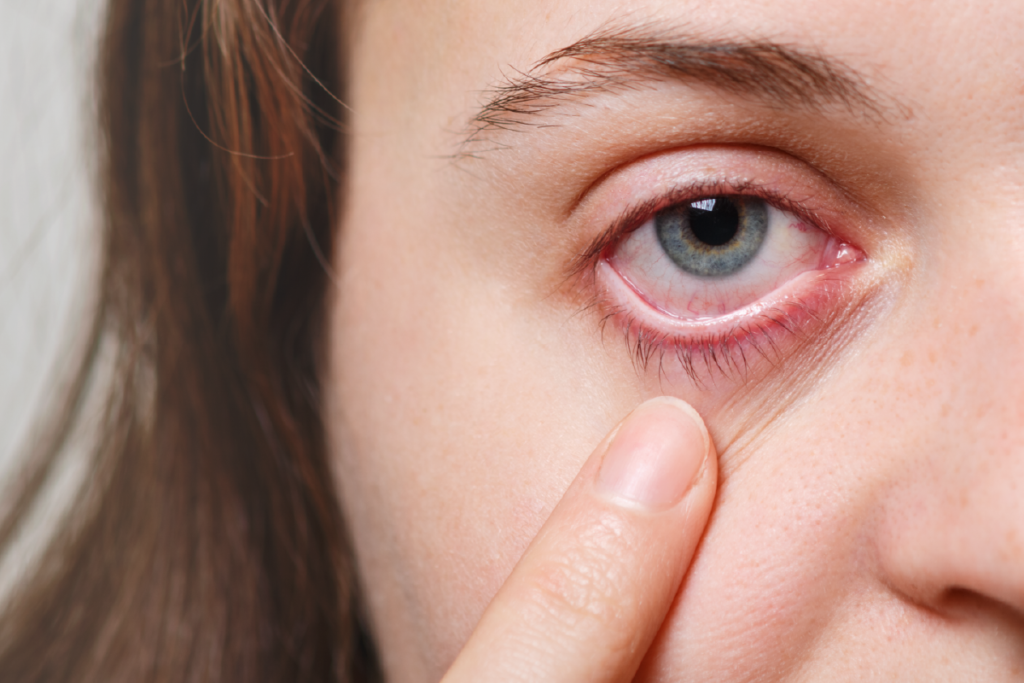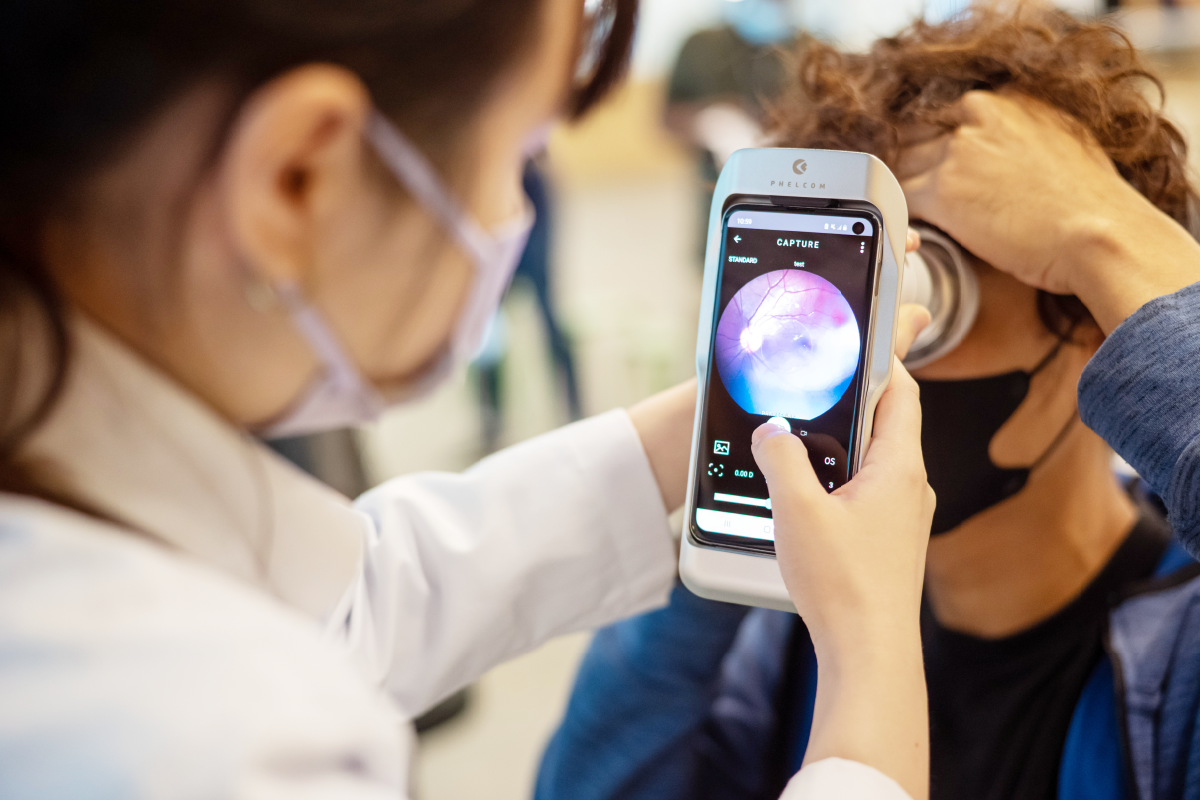Dry Eye Syndrome
Dry eye syndrome can occur at any age, and in people who are otherwise healthy. It is more common with older age when the individual produces fewer tears. It is also more common in women than in men.
What is Dry Eye Syndrome?
Your eyes need a layer of tears to lubricate the surface and keep the eyes comfortable, clean and clear. These tears also wash away particles, dust and bacteria that can lead to infection and eye damage. Dry eye syndrome occurs when there is a chronic lack of lubrication on the surface of the eye either because not enough tears are being produced, the quality of the tears is weak or they evaporate too quickly.

What are the symptoms?
Symptoms of dry eyes and dry eye syndrome include:
- Burning sensation
- Itchy eyes
- Aching sensations
- Heavy eyes
- Fatigued eyes
- Sore eyes
- Dryness sensation
- Red eyes
- Photophobia
- Blurred vision

What causes dry eye syndrome?
1.Computer use – When working at a computer or using a smartphone or other portable digital device, our eyes are focused on a digital screen we tend to blink less, increasing tear evaporation and increasing dryness, blurriness and discomfort, which leads to increase risk of dry eye symptoms. Remember to regularly take a break, look away from the screen and blink several times.
2. Contact lens wear – Though it can be difficult to determine the exact extent that contact lens wear contributes to dry eye problems, Dry eyes is a common problem in contact lens wear.
3. Aging – While it can occur at any age, dry eye is more common in individuals over age 50.
4. Eyelid conditions – Certain conditions which prevent the eyelid from closing completely when sleeping or even blinking can cause the eye to try out, which can be caused by aging or occur after cosmetic blepharoplasty or other causes — can cause severe dry eyes that can lead to a corneal ulcer if left untreated.
5. Environment – Whether it is the air conditioning or forced-air heating inside or the dry, windy climate outside, the environment of the air around you can contribute to dry eyes by causing your tears to evaporate too quickly. Air conditioning, ceiling fans and forced air heating systems all can decrease indoor humidity and/or hasten tear evaporation, causing dry eye symptoms. Arid climates and dry or windy conditions increase dry eye risks.
6. Medications – Many prescription and nonprescription medicines including certain blood pressure medications and birth control pills have been found to cause dry eye symptoms.
7. Gender – Women are at greater risk of dry eyes than men of the same age. Likely related to hormonal fluctuations, especially during pregnancy, menopause or when using birth control pills.
